Building Community
Originally Posted 12/10/24
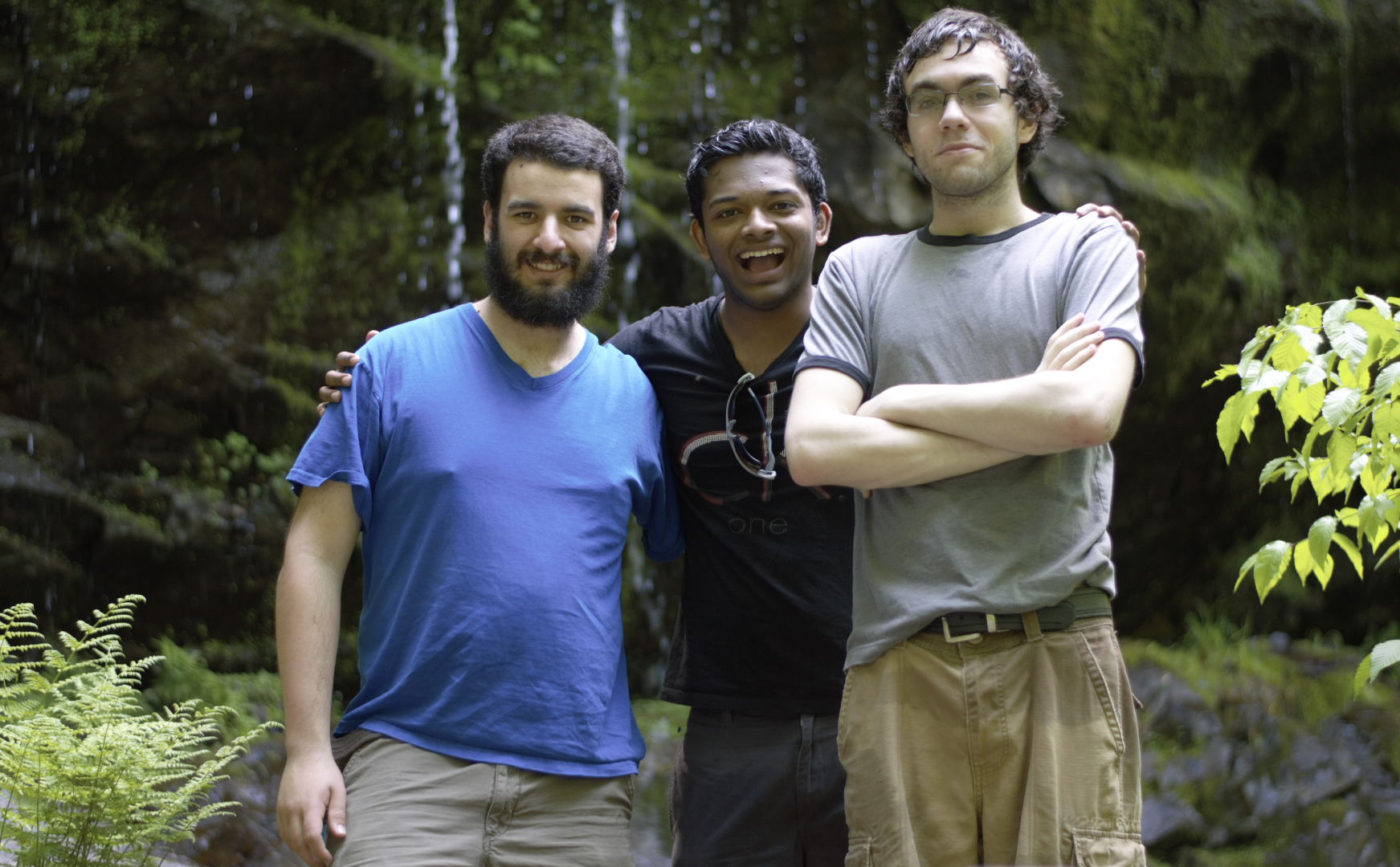
I decided to write this blog post after seeing someone reference an article called "I'm Starting to Think You Guys Don't Really Want a "Village"" by Clare Haber-Harris. While I don't completely agree with some of the points made in that article, the general sentiment is something I've thought about before. People seem to want community - I've seen people mention it online, as well as I know personally my friends and I often talk about how isolated we can feel (we all live pretty far from each other). In a more general sense, I think this is a particularly bad issue here in the US (and maybe other "First World Countries") where individualism is something that's really grilled into us. You shouldn't ask for help, you should be able to do everything yourself. I spoke about it a bit in my Evolution of Trust blog, but building trust and community takes repeated interaction with people, and doing things for each other. As Clare Haber-Harris points out, most people nowadays are too busy to help others, and really just want help on their own terms. And this is something that is understandable - everyone has very busy lives and it takes effort to be there for others, and if you're already tapped out from everyday life you're not going to feel like you have it in you to help anyone else. But then the problem sort of just persists - you're not building a community or getting out there.
High School and College
When trying to think of where to start with my thoughts for this subject, I realized the best thing would be to go chronologically. Back in high school, I was definitely apart of a community of people, even if I didn't realize it. I had multiple friend groups that I sort of floated between - I had friends from High School, some friends outside of High School, and friends from work at a local grocery store. Between all of these groups, and general life within High School, my schedule was pretty busy. I remember often going hiking with any combination of people, having nights where we'd all go to Olive Garden for dinner and hang out, bonfire nights, cliff jumping days, get togethers for the major holidays, etc. I absolutely loved this and really appreciated that, for pretty much any problem, there was someone I could call to get help from. One time my tire went flat while I was at work, and within an hour one of my friends had showed up with a jack and brought me to get a replacement tire.
Here are some photos of some of the various groups:
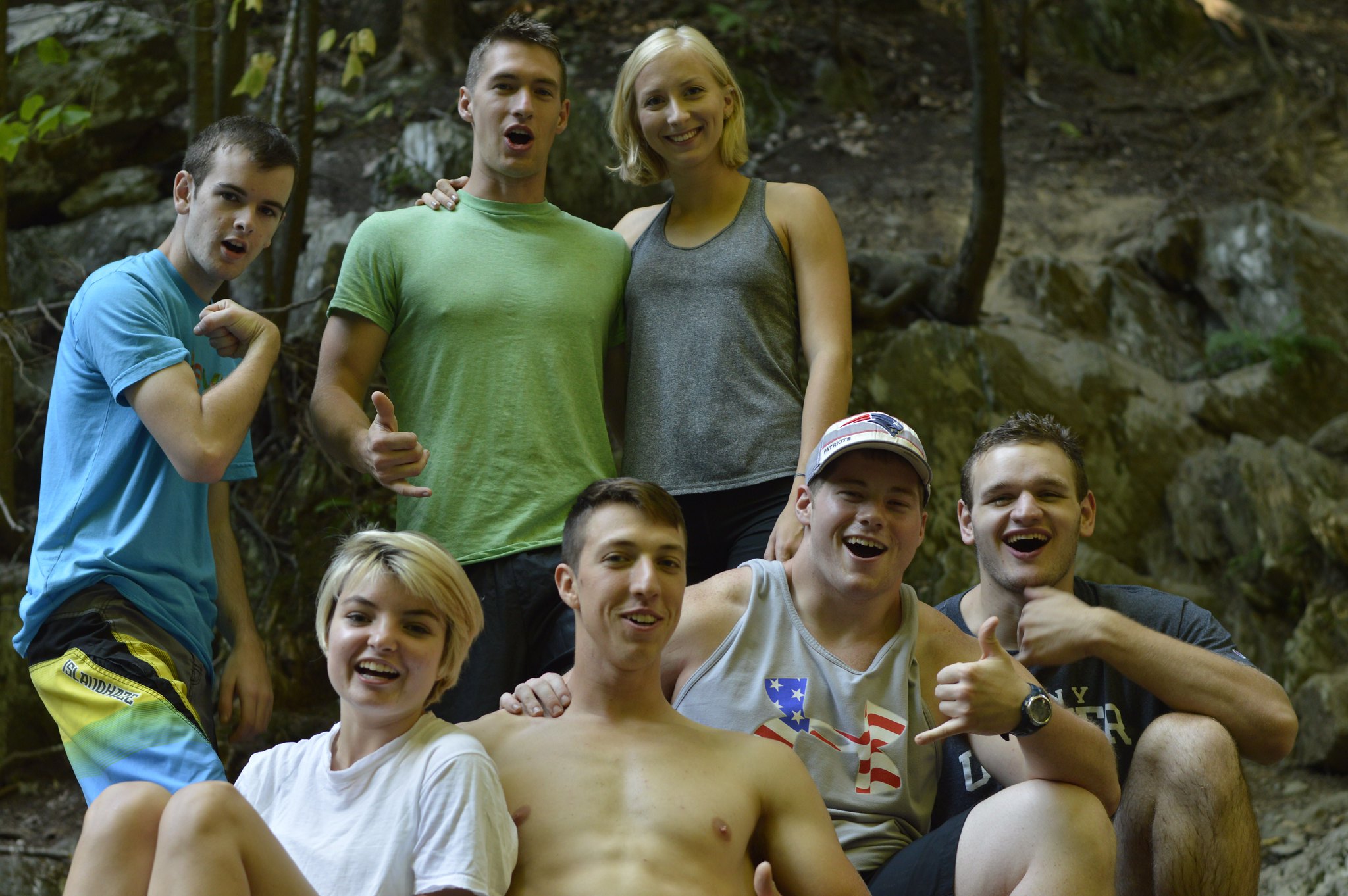
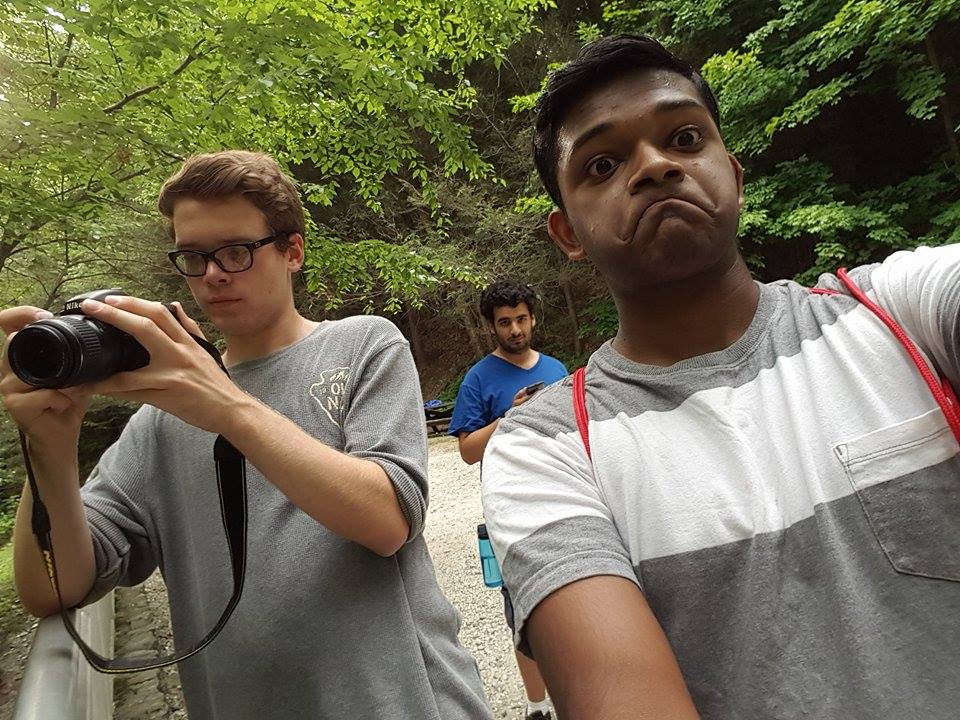
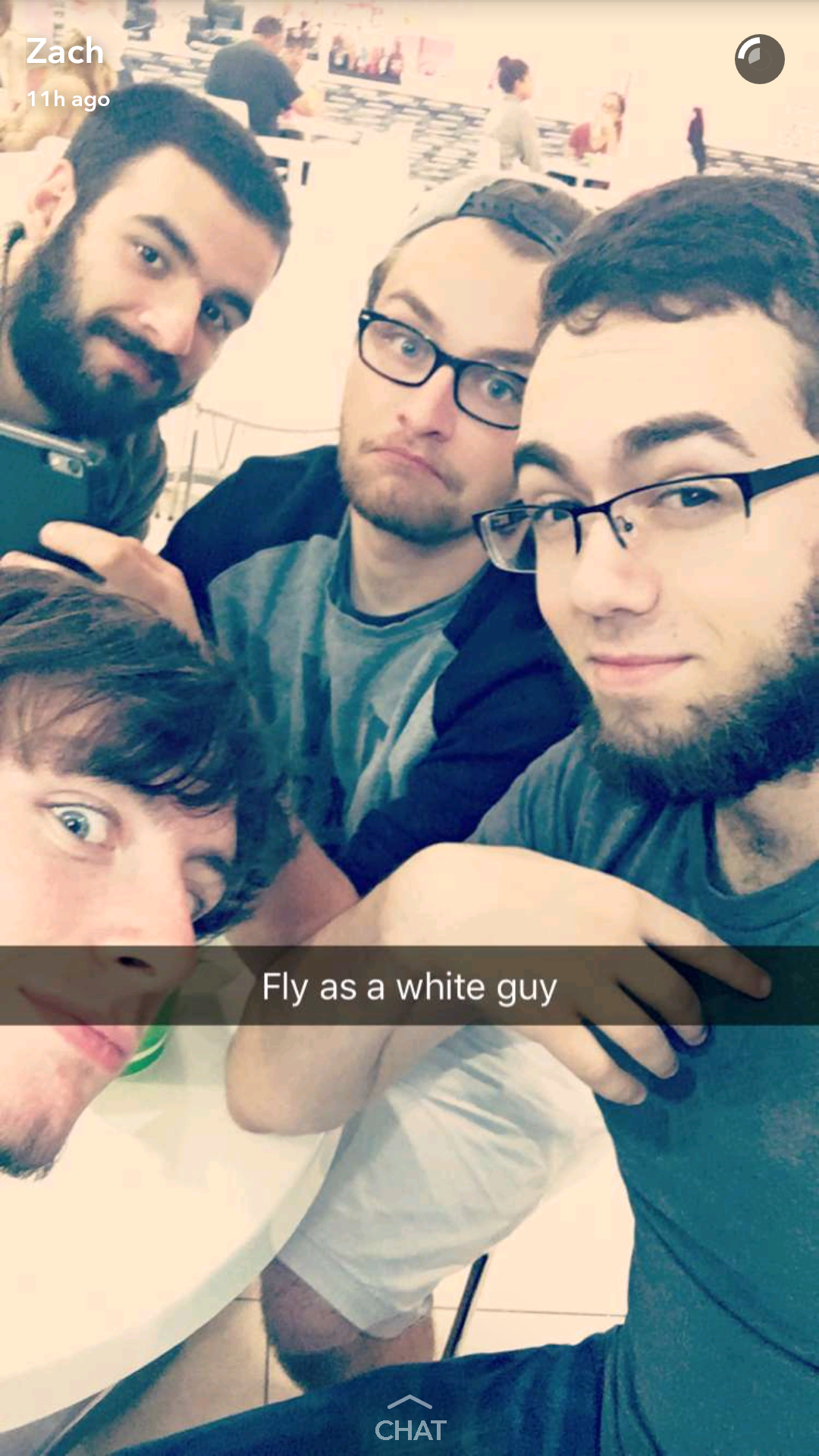
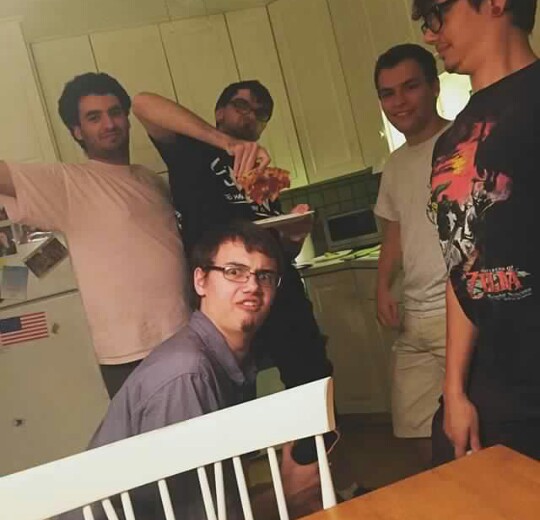
Currently, I'm lucky if I see more than 2 or 3 of my friends in person at a time. With the groups from High School, I think a pretty normal thing happened - everyone grew up. Everyone went off to college, moved to different areas of the state (or country), and I don't really talk with most of them anymore. I'm sure I could hit most of them up out of the blue, and they'd respond and we could catch up. But.... it's not the same.
My schedule in college continued to take up most of my time. College work itself was busy, but then I also worked a part time job. In Community College, I had some friends from classes, but I never really had time to really socialize with them. I lived 45 minutes away from the school, and when I wasn't in class I was working. Luckily, my high school group was still around. When I went off to four year school, the most social I was was during the first semester when I lived on campus. I had been given some pretty great advice which was "leave your dorm room open as much as possible". This allows people to sort of just walk into your dorm and socialize. The whole floor I lived on sort of operated this way, and it was pretty great! I also often cooked in the shared kitchen on the floor, and so people often came in to chat. Here's a photo of all of us hanging out in the common area one day - studying, cooking, or just catching up.
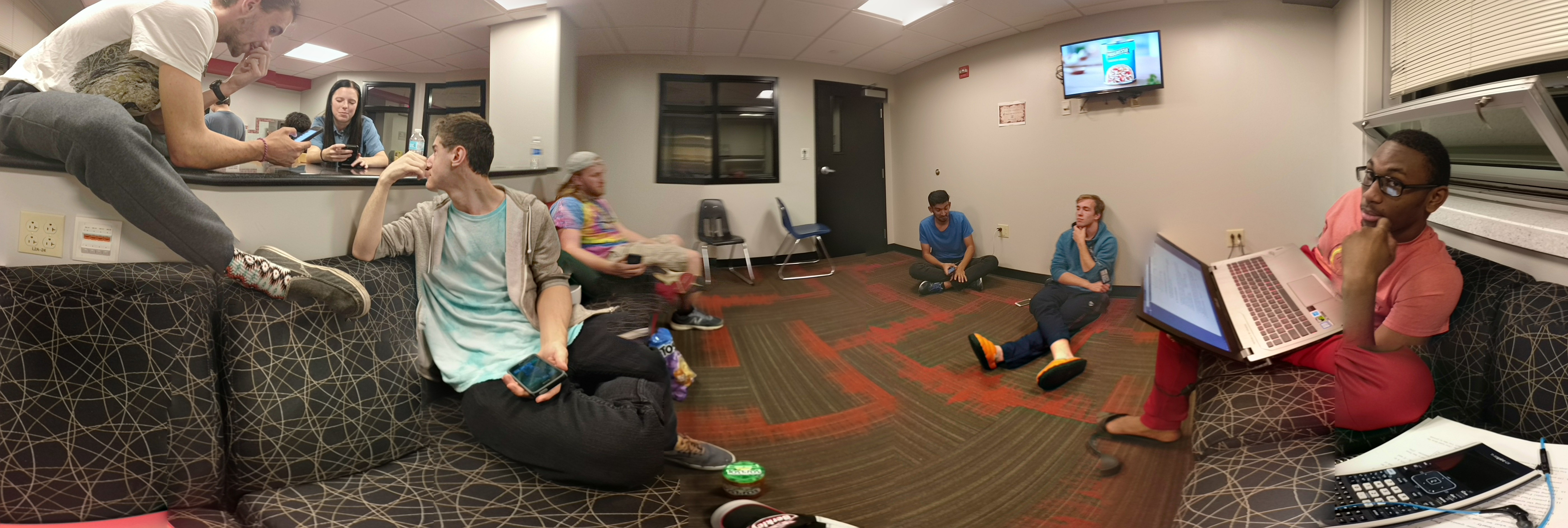
I eventually left living on campus though, as it was cheaper off campus and I wanted my own space. I ended up moving into a place that did suite style living - 4 rooms to a suite, each room had its own bathroom, and you just shared a common kitchen area. At this point I largely remained social with either my roommates or work friends while at work. Hiking went way down, and again, just between college and work my free time was limited. The most common way I interacted with friends was video games (which I had also done back in high school).
I eventually left the suite style to a pretty nice size 2 bedroom apartment I rented with a coworker of mine. In the same building was her boyfriend and the boyfriends brother, who I began to hang out with. The boyfriend introduced me to an SCA group he was starting, and that's the biggest group of people I begun to socialize with. The SCA is a large organization that focuses around medeival combat and skills - from cooking, to weaving, to leather work, to anything medeival really. This was something I was always interested in, so it was a lot of fun to participate in. And, practice was usually right out my front door. There were also plenty of nights where I'd just walk downstairs and chat with the brother around a fire at the end of the night.
Post College
I eventually left the area I went to college in once I received a job offer in the next state over. Similar to what happened after High School, a lot of people from college moved to other parts of the country, and I've lost contact with most of them. Again, I could probably hit them up out of the blue to catch up, but it's not the same as it has been. And now, the only real friends I see in person, are friends that my girlfriend has introduced me to (and usually only when she's hanging out with them). Most of my interactions are solely online now. My in person friend groups and social circles pretty much peaked in High School, and have been on a downward trend ever since.
It's one of those things that I think makes sense - for the longest time I was working three jobs. I barely had time to go grocery shopping, much less socialize. Now though I'm working one job, but money is incredibly tight. And so being able to travel (even just affording gas), is tough. The biggest social outlet that I should tap into more is the SCA. There are local groups here and there are plenty of people that I'd love to hang out with more. However, most of the practices are about a 45 minute drive from me, and the group I knew in college is about a 2 hour drive. Often practices are also on the days I use to get ready for the week, and so it's hard to find the time or money to be able to go to such events. Every time I go to an SCA event though, I have a blast and tell myself "I need to do this more often".
It's unsurprising then, I think, that the idea of community and building one has really become interesting to me. I think the first time that the idea that it was something you could actually, intentionally, build struck me was from the following Cohost post. I'm going to copy the information over from the post below:
Cohost Post
Permanent Reset
Posted: 06/02/24
There's this weird societal standoff happening where we're all aware we need more in-person human interaction, to rekindle human connection, and to build genuine friendships and healthy communities, but as soon as it leaves the realm of abstract thought we all collectively shrug our shoulders and go "I dunno, hope someone figures out how to do that."
And, man, this whole "I'll be in on the community as soon as it exists" mentality is just not how community works. I mean, it's blatantly not. I get it. We're all tired, we're in a low trust culture. People are messy and not always easy to get along with. Trust me, I get it. But at the same time we can't constantly be yearning for more and never acting in an attempt to make that change. Or I guess we can if we're actually content for there to never be any change.
Yeah, meeting up with your friends once a week is, sometimes, a bummer. Sometimes you want to just spend Friday evening doing nothing. You're exhausted, you've had a shit day, you don't have the energy to be personable. Do it anyway. Go be exhausted with company, and let your friend be exhausted in your company.
Make clubs, go on hikes, get into TTRPGs, go to the bar if you can afford it, have dinner parties, pick up board games, play Smash Bros on the couch.
I dunno man, I keep seeing posts and comments of unanimous consent that we're all very lonely. Tons of people in one digital space all shouting for friends. Why not make friends with each other? Start a discord, start talking, share weird memes, play some video games, have discord movie nights. It's not the same but it's a start. Who knows where that can lead?
Anyway, just some thoughts. As the guy who's weirdly always the glue of the friend group, it can be tiring at times but it's usually worth it. Maybe the discord will die, maybe nobody will join. Close the server and try again. Maybe friend night will be pushed to every two weeks. Maybe once a month. Keep it going. Expand it. Be welcoming. Give it a try.
fred
Posted: 06/03/24
To add to the chorus
It IS possible to find community with people who also care about not getting or giving COVID to people, and it's very enriching to find them locally to you.
But it's a much smaller percentage of people which makes it very difficult and your options for community enriching experiences is severely limited because no one outside of your community is interested in COVID safety.
So. Respect to this post but all the reshares are really depressing me BC there are good comments and other good reshares about how COVID impacts this and people are not engaging with those comments/posts and it's popping my delusion bubble that all the queer ppl in my phone care about keeping each other safe 🫠 let me keep pretending y'all
Noel B
Posted: 06/03/24
If you're going to build your own community, you need to build COVID safety from the start
Last year we got a bunch of artists in our neighborhood to get together and start a co-op art studio. It's a nonprofit with the goal of having a space to do art and we can all share the rent and costs associated with it, on a sliding scale. We wanted this to be inclusive and welcoming to everyone in the community.
One of the things we did was draw up a COVID safety plan. Masks, air filters, a protocol for contact-tracing if necessary, we're getting an air quality monitor as well. We built these things in from the start because we knew if we didn't prioritize them, it would get away from us and it would be harder to implement them (or budget for them) later on.
It turned into this third space in which people will drop in to hang out even if they don't have the time or wherewithal to do an art. I wouldn't call everyone who's a member a friend, I'm not that close to everyone. But they're part of my community. And who knows, if we keep spending time together, they may become friends as well.
It is possible. It's hard. Some people will self-select out of participating because the don't want to wear a mask or hang out with a bunch of queer commies and a singular cishet commie. That's good, you don't want to hang out with those people either.
We had some advantages not everyone does: we live in a big city in a walkable neighborhood. We found people that way. We found a dirt-cheap space that was falling apart and most of us were able-bodied enough to fix it up. We had enough people interested in joining that we could implement a sliding scale so more of us could afford to join. We had people that were okay paying more because they could afford it, so other people could pay less. So I'm not saying this is the blueprint for everyone and it's super easy and just do it.
I'm saying it's possible. It takes time (it took us most of a year to be up and running). It takes effort. Sometimes it takes money. But it will look different for your community. Maybe you don't want a COVID safer* art studio. (As it was pointed out in the comments, no in-person interaction is 100% safe from COVID. We can mitigate risk, but not eliminate it.)
Make a COVID safer book club and meet up at a public park. Make it even safer and meet over discord or zoom. Or make it a knitting club. Or volunteer to do something outdoors that's local to you (I help with natural area restoration, you can find something like that or a chapter of Food Not Bombs or something else entirely... My local FNB is COVID conscious and so is a local free store...in general I had better luck with anarchist-aligned organizations when it comes to COVID. Not all of them, but a larger percentage than most other "nonprofits." My local free store also needs volunteers for online stuff: logistics, planning, training, onboarding... And they have a slack group chat with channels to socialize, not just to organize labor. I think an online "movie club" emerged organically from socializing there and now there's a dedicated channel for it.
It's easier when you have a goal to get together with people that's not just "hanging out." It's also easier when you make sure as many other people as possible could keep the Thing running if you dropped off the face of the earth tomorrow. It's easier if you find who's already doing the thing. It's easier if you build COVID safety in from the start and not make a big deal of it. Most people (your local area may vary) will not object to wearing a mask if people are already wearing one and you offer them one right then and there.
Note, this next part was in the comment section:

Moose
Munchin and Musing
Posted: 06/03/24
It never occurred to me until reading this that you can just like... start a co-op. In my head (which, funnily enough, is similar to the first post) I was just like "oh, that's something other people do". Are you able to talk about what the process of setting up the Co-op was, or if there are any resources online to look into what the process would be like?
Noel B
Posted: 06/03/24
In broad strokes, what we did:
- Find people that wanted to be part of it
- Decide how it was going to work (sliding scale, budgeting, decision-making, etc)
- Look up legal stuff and find out that Chicago (and most of the US) is shitty when it comes to actually legally defining and setting up a co-op nonprofit
- Set up a normal nonprofit, making sure everyone is on the board and with clear defined terms for who's president, secretary and treasurer (three positions legally required for a nonprofit to exist), also what other jobs are needed, etc, how elections work, how often we're meeting, etc
- Write all of this down
- Set up a process to invite more people if we want (we do, fairly often) and to kick people out if needed (we haven't needed to, fortunately)
Unfortunately legally speaking this is all going to be very local (and sometimes very obtuse) so I would start by trying to find local resources, lawyers websites that are still doing content marketing and may have a blog explaining it, nonprofit clinics or mentorship things, other coops that you can ask for guidance, etc
As I mentioned above, the idea you can just create a sort of community or Coop never really entered my mind before. Starting businesses or groups like that was something other people do, but I had no clue how to do it. I still don't really. But it's something I hope to do one day when I have more time and resources - create some time or space every week where people can just come and hang out, chat, or whatever. Or maybe try to find something locally that already does that - I've just not really come across something like that, other than the SCA.
This is also reminds me of something brought up in the original article though - it's hard to get a group of people dedicated enough to do something like this. I think about how there are two groups of people I'm supposed to have biweekly or monthly TTRPG nights with, and so far one group has not met in over a year and the other group has not met for a few months. It's no one in particulars fault - adults all have different schedules, and there always seems to be something coming up that is more important. But then it's just... tough.
More Recently
Since that Cohost post, the next big thing that has me thinking about community is the 2024 election results. It's left me sort of feeling hopeless. The country seems to be welcoming with open arms someone who I think will make the place actively worse. And there's nothing left to be done about it at this point. And so what do you do?
One solution, as mentioned in this Adam Conover video, is to become more of an activist and involved in your local community. While there's little we can do on a country level, it's much easier to get started and try to make noticeable change in just your local area - be it town, borough, or whatever. And if you're more active in your community, the less sense of helplessness you'll probably feel, since you'll be out there knowing you are trying to make a change. Whereas for myself for example, I'm just sort of sitting on the sidelines. Sure I vote, and complain here on my website, but outside of that I'm not doing too much.
Wrap Up
So be it the internet, loneliness, or hoplessness the answer seems to be the same - build better sense of community. I've referenced it before, but this video by Kurzgesagt talks about one way to make the internet better. They talk about how maybe we should go back to how the internet used to be - with a lot smaller communities, where people can feel more connected to one another.